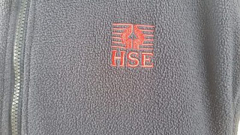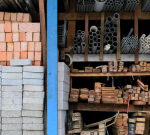Laws governing safety-incident reporting and lifting operations could be shaken up as part of a government mission to cut red tape and boost economic activity.
The Treasury said consultations would be held over potential alterations to the Reporting of Injuries, Diseases and Dangerous Occurrences Regulations (RIDDOR) 2013 and the Lifting Operations and Lifting Equipment Regulations (LOLER) 1998.
The plans were revealed in a policy paper published today.
“We will tackle instances where current approaches are unnecessarily limiting growth,” said the Treasury.
“This means working with regulators to identify specific opportunities where we can adapt practices while maintaining high standards across our economy.
“This includes the Health and Safety Executive (HSE) initiating work in 2025 to consult on potential changes to the definitions, occupational diseases and dangerous occurrences reported under the RIDDOR 2013 [rules], and consider improvements to the reporting process to ensure business can comply in the most efficient way possible.”
The HSE would also this year review the LOLER 1998, and “consult to identify and remove unnecessary regulatory burdens and identify potential changes to this legislation to reflect technological advances and reliability of work equipment”, according to the policy paper.
RIDDOR was introduced in 1985 and requires employers and those in charge of work premises to report and keep records of work-related fatalities, injuries and occupational diseases.
It underwent revisions in 1995 and 2013, latterly to simplify reporting requirements.
The HSE uses information gathered via RIDDOR to hone its guidance and advice on how to avoid work-related deaths, injuries and ill health.
The watchdog also enforces LOLER, which was introduced in 1998 to ensure the safe operation of lifting equipment in the workplace.
Ruth Wilkinson, head of policy at the Institution of Occupational Safety and Health, welcomed the consultations on the proposed law changes.
“We know there are currently some gaps with RIDDOR, like on driving for wor





